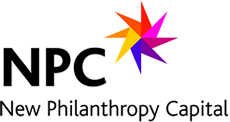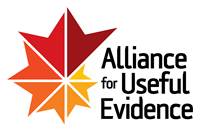Impact Measurement – something completely different
Impact Measurement – something completely different
Guy Ravid, Senior Social Analyst, Head of Research, Midot, Israel
The reunion of the Monty Python show, celebrated last week, was also screened live here in Tel Aviv at YES Planet. I couldn’t get a ticket to the occasion, so instead I went with my anglophile older boy to a three-day marathon of the groups’ movies at the Tel Aviv Cinematheque. We watched Life of Brian, the Holy Grail and the Meaning of Life, and it was, as I remembered it from my adolescence years, something completely different.
In between one gag and another, my thoughts were drifting to my work. As a Social Analyst, I am simultaneously conducting evaluations for six Non-Profit organizations at any given time, and I was preoccupied with a coming deadline. These NPOs are counting on my reports, since my evaluation of their performance, awarded as Midot’s Seal of Effectiveness, provides them with a prestigious recognition and allows them to join the list of charities approved by Round-Up Israel.
A few days later, everything changed, and my deadline became the least of my worries. Three Israeli teenagers were kidnapped and savagely murdered, a Palestinian teenager was kidnapped and burned alive in a self-proclaimed retaliation by a Jewish settler, and yet another vicious cycle of violence between Israel and the Palestinians erupted. Hundreds of rockets are being launched daily from Gaza onto Israeli cities, and hundreds of missiles and bombs are being dropped over Gaza by the Israeli Air Force. As I write this letter, my family and I are stepping out of the shelter with relief for the third time today.
We live in fear, and our kids are traumatized, but with no comparison to the stress felt by people with disabilities, Israelis and Palestinians alike. Try to imagine a couple who is hearing impaired when the “Red Code” siren is on. Envision a person in a wheelchair who has only 15 seconds to reach to safety in the nearest shelter. Picture a teacher at a special needs school who needs to explain to her students the meaning of the situation and then guide them all safely to a protected area. [Even they have more support and options than the elderly Palestinian lady, her sight almost lost, when informed to leave her house immediately or else she won’t be spared when it is bombed. An alerting siren is not an option in Gaza, and that elderly lady does not enjoy the successful Iron Dome like her Israeli neighbors.]
To support people in need, those whose dependency on others is intensified in times like this, many specialized local charities are shifting their focus to meet urgent needs. Some programs reduce their volume of activity in favor of ad-hoc services, including volunteers providing meals, transportation, and company to the frail and the elderly. Others hire counselors, social workers and therapists to reduce stress and strengthen community resilience. At Aleh Negev, for example, a rehabilitative village for people with severe disabilities, located about 14 miles from Gaza, they are not giving up and continue their routine, allowing residents to enjoy in-house employment opportunities, physical activity, enrichment and leisure, like they always do. However, staff ensures that participants are within 30 seconds from shelter at all times. At the same time, the organization is struggling to retain its staff, hard-working care givers who leave young children at home, with no adult figure to comfort them and keep them safe when the dreadful sound of the siren is heard.
But what does this mean in terms of social impact? Are these organizations still pursuing their goals? How will this affect their results in the long term? One approach suggests that these charities are mobilizing resources and manpower towards pressing missions not included in their plans, sometimes drifting away from their theory of change. Others may say that a high-performing organization is tested in challenging times, and what is more effective than responding to beneficiaries vital needs? Suddenly the term “Impact” gets completely different meaning.
As a recently published report by Médecins Sans Frontières (MSF) teaches us, these dilemmas are not unique to one war zone. The authors of Where is everyone? are acutely aware of the limitations and deficiencies of the international aid response to crises. MSF recognizes that some good work is taking place, and lives are being saved, but much more can, and should be done, to reach those people most in need.
While being occupied with the charities I need to evaluate, my thoughts are also with the Palestinians on the other side of the fence. Through Kiva I lend annually to hard-working Palestinians, mostly women, who struggle to survive and not only make a living, but seek to grow their small businesses in this impossible environment. They too are suffering from a political deadlock, hoping for a better future.
Every day we, at Midot, are trying to find creative ways in which we can help both social investors, and charities, to improve their work and make informed decisions. We urge them to adopt a new thinking, one that relies on evidence-based results. Unlike Cicero, who said “Silent enim leges inter arma“, I believe that our effort should not be limited or diverged even when the drums of war are literally dominating the public sphere.
Being a tireless optimistic, I believe that a worthwhile, encouraging surprise is just around the corner. After all, nobody expects the Spanish Inquisition, do they?
Guy Ravid is Senior Social Analyst and Head of Research at Midot in Israel.





